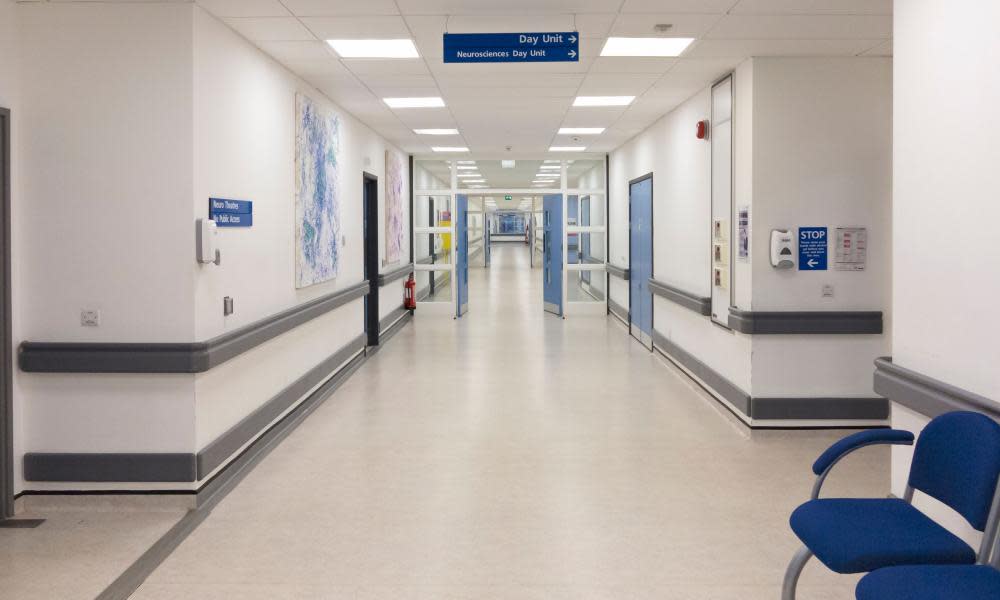Some hospitals in England to be kept Covid-free in second wave

A series of hospitals will be designated as coronavirus-free zones during the second wave of the outbreak in a significant policy shift designed to ensure the NHS continues treatment for cancer and other conditions, the Guardian has learned.
NHS England is determined not to repeat the widespread suspension of normal service that occurred in the first wave, which doctors and charities have criticised for damaging patients’ health, leading to more deaths and creating a backlog of millions of treatments.
In a tacit admission that the March shutdown denied patients vital care, NHS bosses have drawn up plans for certain hospitals – mainly small district generals – to treat no Covid-19 patients and focus instead on common planned operations such as cancer surgery, hip and knee replacements, and cataract removals.
Under NHS plans, such “clean” hospitals will as far as possible be kept free of coronavirus patients in a reversal of the approach taken in spring. That should reduce the risk of patients admitted for normal care becoming infected with Covid-19 while on wards.
default
NHS executives privately admit that too many patients were put off undergoing diagnostic tests or hospital treatment during the pandemic because they were worried they might contract Covid-19.
One said: “For perfectly understandable reasons people didn’t come, so we don’t want that to happen again. So this time round we need to be more visibly open and let people know that much more elective care is available so they will access it for help with things like cancer.”
In north London, the Whittington hospital has been designated as a coronavirus-free site. It will receive no infected patients so it can undertake non-urgent planned surgery. Covid-19 patients who would usually go there will instead be treated at University College London hospital or the Royal Free hospital nearby.
Similarly, in north-west London, it is likely that Ealing and Hillingdon hospitals will perform the same role as the Whittington for the duration of the second wave, with coronavirus-positive patients treated at St Mary’s or Chelsea and Westminster hospital.
Another official said: “Some hospitals will do elective work and nothing else, others will do a combination of electives and also have Covid-positive patients in their ICU [intensive care units]. Hospitals not having a Covid intake will make it easier.”
Millions of people missed out on NHS care after the tackling of coronavirus was prioritised in the first wave. A record total of more than 2 million people – triple the figure for the same time last year – are having to wait more than 18 weeks to start hospital treatment in England, latest figures show.
An NHS executive said: “Everyone around the country is considering doing something like this, dividing hospitals into Covid and non-Covid hospitals if they can. We aren’t looking to go around this wave stopping all elective work. We are looking to do the opposite – to keep elective care going by ensuring that some places remain Covid-free, so they can concentrate on surgery.”
Urban centres are much more likely to have entire hospitals designated coronavirus-free than rural and coastal parts of England, because of the longer distances between hospitals.
Groups representing NHS trusts welcomed the plan for Covid and non-Covid facilities. Saffron Cordery, deputy chief executive of NHS Providers, said: “This time round it makes sense to put arrangements in place to ensure that as much routine care as possible can continue, including identifying Covid and non-Covid sites.
“This approach can reduce the impact of necessary but burdensome infection control measures, such as deeper and more frequent cleaning and the need to wear and change cumbersome protective equipment, which should mean that there is greater capacity to treat and care for patients. Much has been learnt since the first wave of the pandemic.”
Related: BAME Britons still lack protection from Covid, says doctors' chief
All of the NHS’s 44 regions have been told to come up with detailed plans to keep elective care going as much as possible even if coronavirus again puts significant pressure on hospitals. Some trusts, however, will do that by providing both Covid and non-Covid care at the same hospital, and maintaining strict infection control. Others will use small facilities they run which do not have an A&E – such as Kidderminster and Cannock hospitals in the Midlands – to do that.
Layla McCay, director at the NHS Confederation, said: “NHS leaders and frontline staff remain committed to delivering care for all patients. Whilst it was necessary to put elective treatment on hold during the spring peak of Covid-19, it is now important that we also try to resume normal services as far as possible.
“The backlog stands at a record high and so finding innovative and creative ways to meet demand will be key, particularly as we head towards a turbulent winter period. We commend solutions which see hospitals working together to deliver specialist care whilst bringing down waiting lists so that patients don’t have to wait longer than is necessary.”


